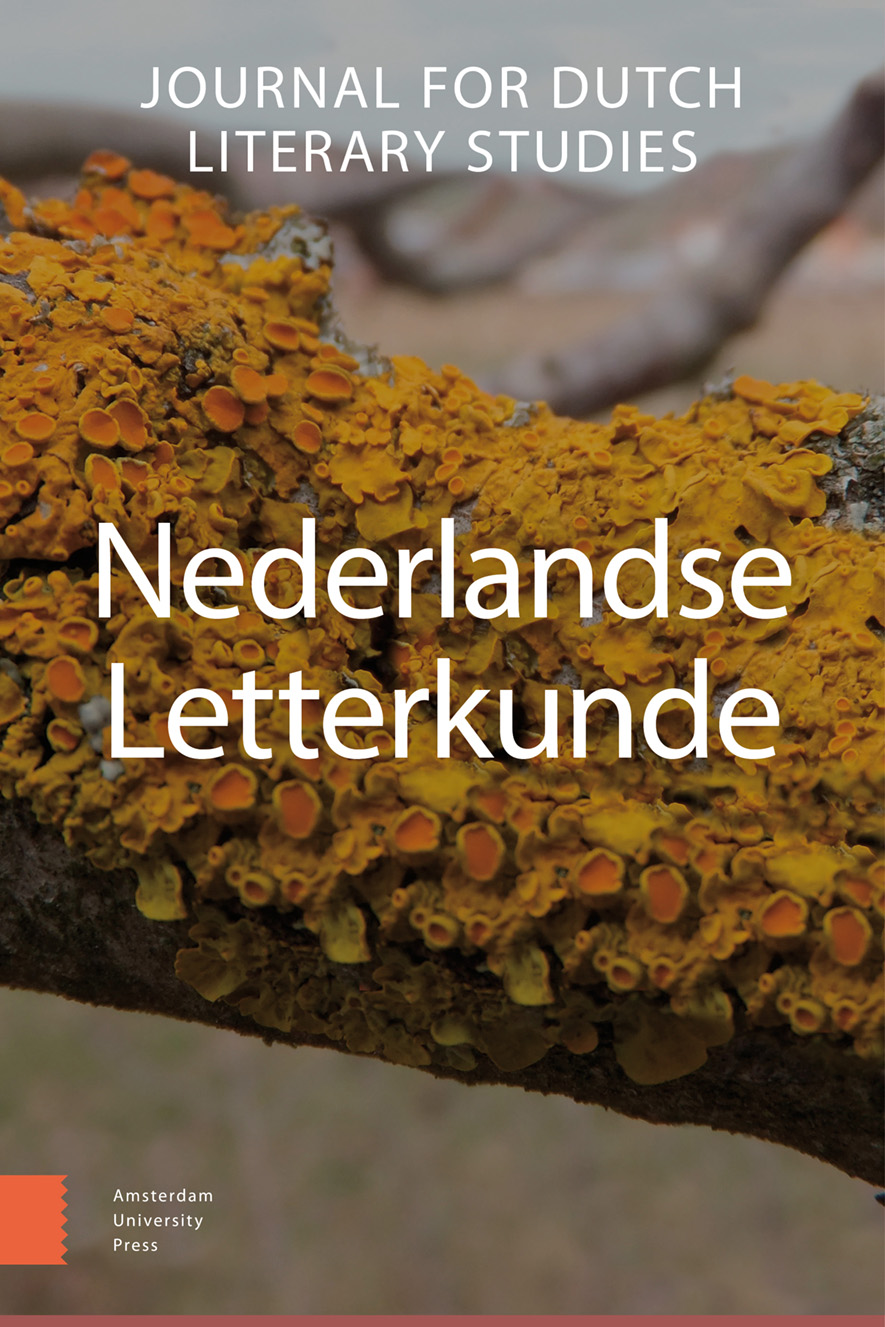- Home
- A-Z Publicaties
- Nederlandse Letterkunde
- Previous Issues
- Volume 25, Issue 1, 2020
Nederlandse Letterkunde - Volume 25, Issue 1, 2020
Volume 25, Issue 1, 2020
Taal:
Engels
-
-
oa Naar een diachrone blik op de verdiensten van Nederlandstalige auteurs
Meer MinderAuteurs: Remco Sleiderink, Helleke van den Braber, Nina Geerdink & Laurens HamAbstract This article argues that it is both important and viable to develop a diachronic perspective on the profits of literary authors in the Low Countries. Up to now, conceptual and theoretical boundaries between different subdisciplines within Dutch literary studies have resulted in a compartmentalized, fragmentary narrative of the economic, social and symbolic profits of literary authors throughout the centuries. On Read More
-
-
-
oa Echte schrijvers zijn niet te koop
Meer MinderAuteurs: Helleke van den Braber, Nina Geerdink, Laurens Ham, Johan Oosterman & Sander BaxAbstract A grand narrative of Dutch literary authors’ opportunities to economically profit from their writing is yet to be written. The general assumption, however, is that these opportunities developed teleologically from a dominant system of patronage during medieval and early modern times, in which financial gains were marginal and in which author’s independence of their supporters was constrained, to a system in wh Read More
-
-
-
oa Loon, lust, liefdadigheid
Meer MinderAuteurs: Nina Geerdink, Jeroen Salman, Remco Sleiderink & Rob van der ZalmAbstract Throughout the centuries, many literary authors were engaged in writing theatre plays. Although there are many studies about the theatre business in general from Medieval Times to the present, the perspective of the playwright’s profits is seldom taken into consideration. This article presents both a survey of author’s options to gain an income in the world of theatre and an analysis of the discourse about this advance Read More
-
-
-
oa Krijg je nog rente voor een lied?
Meer MinderAuteurs: Laurens Ham, Nina Geerdink, Johan Oosterman, Remco Sleiderink & Sander BaxAbstract This article presents the first diachronic overview of the economic, social and symbolic profits of ‘city poets’ (‘stadsdichters’) in the Low Countries. From the early fifteenth century onwards, there have been many (more or less) official relationships between city councils and poets. The prominence and the form of these relationships, however, diverged greatly in different periods: whereas official appointments were Read More
-
Volumes & issues
Most Read This Month
Article
content/journals/13845829
Journal
10
5
false
nl


